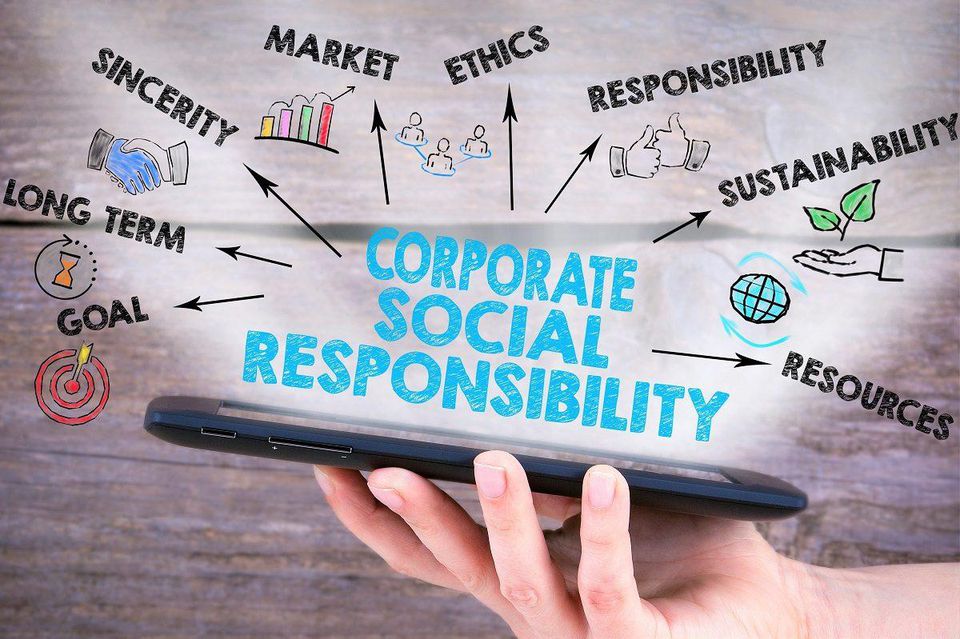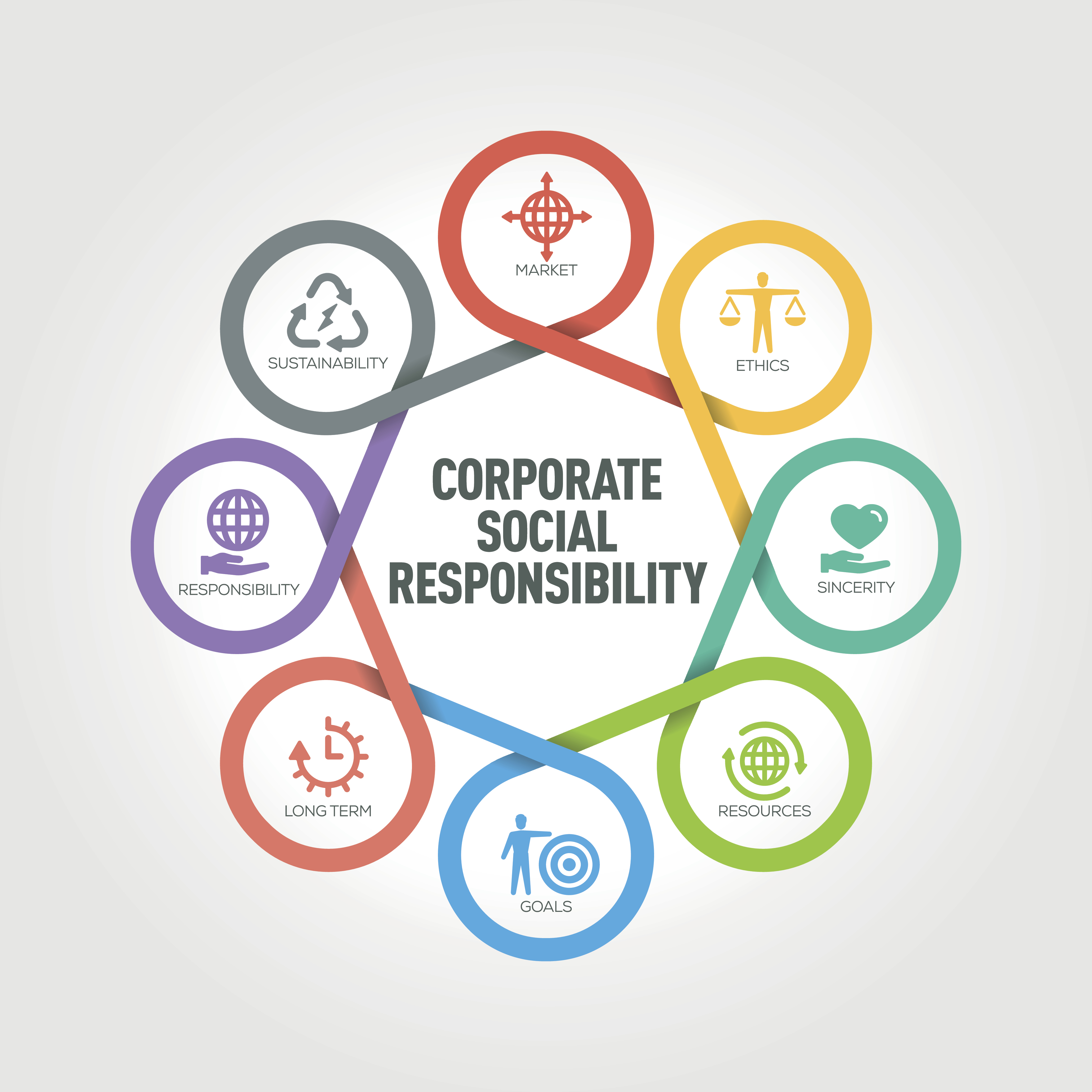Proving Friedman Wrong: CSR Misunderstood & Why Georgia Needs It
A good company respects the law, respects and looks after its employees, respects and looks after the society in which it works, and respects and looks after the environment in which it exists; in short, it employs a good Corporate Social Responsibility (CSR) strategy.
Milton Friedman, an American economist who received the 1976 Nobel Memorial Prize in Economic Sciences, once said, “There is one and only one social responsibility of business – to use its resources and engage in activities designed to increase its profits…” Modern business practices as well as societal and legislative demands are proving him wrong in his assessment of the purpose of a business. Transparency, accountability, reliability and green policy are the buzzwords here. Let’s have a look at them in more detail.
Why Do Georgian Companies Need a CSR Strategy?
For a start, it’s part of the country’s responsibility to the European Union Association Agreement, signed in June 2014 and entering into force on July 1, 2016. The Association Agreement aims to deepen political and economic relations between the EU and Georgia, as well as through the creation of a Deep and Comprehensive Free Trade Area (DCFTA). By removing customs tariffs and quotas and by comprehensively approximating trade-related laws and regulations to the standards of the European Union, the Agreement offers Georgia a framework for boosting trade and economic growth in order to facilitate the country’s progressive integration with the EU single market. Various EU VIPs have commented that Georgia is well on the way, but still “needs to do more.” Yet it is not only up to the government to pull the country out of its dark past, but for private entities to help through a unified commitment. CSR is one aspect of this.
In a CSR Study carried out in 2017 by Cone, a Porter-Novelli company with 40 years’ experience advocating for CSR in business, the following results were recorded:
• 63% of Americans are hopeful businesses will take the lead to drive social and environmental change moving forward, in the absence of government regulation;
• 78% want companies to address important social justice issues;
• 87% will purchase a product because a company advocated for an issue they cared about and 76% will refuse to purchase a company’s products or services upon learning it supported an issue contrary to their beliefs.
That was America, though, and Georgian customers are only now waking up to the realization they can (and should) demand more from the companies whose products they buy or services they use. This awakening has come with the increase in competitiveness and, while the numbers would surely be lower should the above study be carried out here and now in Georgia, awareness and demands are growing and companies need to be ready.
By implementing a responsible CSR strategy, companies will find that they are building trust in their products. By being transparent, environmentally friendly and by making a valid contribution to society’s progress, educated customers will be more inclined to choose those companies’ products over a competitor’s, and foreign investors will be more drawn to those companies putting into practice the responsible strategies seen in the West.

How Can You Do It?
Too often, we hear “I’m too small a company, I can’t afford to spend out on charities” or “I’m too small to fix all the problems in Georgia. What difference can I make?” This is where the great CSR Misunderstanding is seen.
First to the affordability. CSR is about ACTION, not MONEY. In the minds of many company owners/directors, “doing good” involves raising money for charity, organizing events or giving material items (like books, equipment or clothes) to select organizations. It can be expensive and time-consuming. But “giving” can also come in the form of giving away knowledge- which takes only time, not money. Why not offer trainings for local women or youth in your field of specialization- pro bono? It costs you nothing but time. Offer your office space out-of-hours to social projects that couldn’t otherwise afford their own. Adapt your services to accommodate the hard of hearing, blind or those with other disabilities. Feel free to plant trees, but if you’re a financial organization, why not instead (or also) give a loan to a responsible agricultural business for a more sustained environmental impact? If you manufacture products, you might think of looking into reducing or redesigning your packaging, or the product itself, to be more eco-friendly: less plastic means fewer resources used in the making, while recyclable packaging means you are taking responsibility for your environment. How you label the product also comes within the frames of CSR: be transparent about what goes into your product- the good and the bad. Customers will value your honesty and that you’re offering them the chance to make an informed choice. And be aware that from March 1, new rules of product labeling entered into force in Georgia, envisaging more protection of consumers’ rights by better informing them about the foodstuffs they are buying. Or how about cutting your energy costs and rethinking your waste management policy in the office? A big company might give $5,000 to charity but spend thrice that on energy consumption. Reduce the number of lights used or replace old bulbs with energy-efficient variants; ask employees to use their own cups rather than paper or plastic when drinking water or coffee; offer initiatives to employees who use public transport or car-sharing to get to work every day; and recycle instead of throwing away your office waste. Tissue Paper is a company that collects and recycles paper and creates new products with it, donating 0,15 GEL to the Borjomi Forest reforestation project for each kilogram of paper collected from volunteer companies- you could give them a call and get your own paper-recycling contribution going.
Second to the size of your CSR strategy vs the plethora of social problems that need ‘solving.’ The thought of all that needs to be done to move Georgia forward and improve the lives of its citizens can be overwhelming. That said, another CSR Misunderstanding is that doing any good at all is “enough.” That’s not to say that getting your employees to donate blood or collect clothes for the local old people’s home or give toys and books to the local kindergarten or school is a bad thing. Far from it. But these are often “one-off” actions, while the point of having a CSR strategy is just that- it must be part of the Company Strategy. The daily workings of the company should revolve around not only money-making, but on “doing good” in some form, in a sustainable way with long-term goals.
Your CSR strategy should not only have an external outlook but an internal one too. This is where your employees come in. We already mentioned how your employees might be encouraged to ‘act’ by recycling and (re)considering their resource consumption, but you can do much to improve your company’s image by adjusting your work methods to generate greater employee satisfaction. We’re not expecting companies to “go Google,” but the Google policy could be used as an ultimate goal. Again, it’s not all about money, though workers should naturally be paid their worth. First, who are you employing? Aim to be an ‘equal opportunities’ employer (in gender, age and physical abilities), as this will certainly catch the eye of foreign investors as well as locals. The healthy environs they work in are important- a clean, organized and functional workspace is vital, allowing free movement and an ease of communication between employees of all levels. Workers have lives beyond the company, and this should be recognized, embraced and encouraged for their mental and physical health as well as their productivity. If a new parent is able to work from home, why not? If there is a gym nearby, why not give employees time or incentives to use it?

Getting Back What You Give
CSR should be systematic, like breathing. It should not be “extra work”- it should be part of how the company, and the employees within that company, function. It should encompass the concept of sustained responsibility.
There are an increasing number of regulations being introduced in Georgia, some, sadly, introduced without forethought or pre-education, such as the limited-coverage inspectorate for workplace safety, but the heart and desire for change for the better is there. That said, all companies should ultimately aspire to be better than the law- for the economy, for society and for the environment.
CSR can play a huge role in your company’s success by boosting public image and esteem, elevating employee and customer loyalty, increasing your competitiveness on the local and international markets, and helping you to catch the interest of international investors. In short, CSR is about giving, with the realization that what your company will ultimately get back will be threefold, if not more.
By Katie Ruth Davies
With thanks to the Center for Strategic Research & Development of Georgia (CSRDG), working to promote responsible CSR within the frames of the EU project ‘Georgian Civil Society Sustainability Initiative.’
Image sources: csrnobel.com, givgo.co, forbes
Further reading/useful links:
Paper for Trees: The Tissue Paper Initiative
ProCredit: Living Green Finance
New Product Labeling Rules Come into Force in Georgia
2017 Cone Communications CSR Study
Taxi 200 200 Shows Support for the Disabled
Georgia Wants to Be In Europe, But Without Eu-Style Bureaucracy
Labor Safety Law to Cover All Jobs
Business Carbon Footprint Calculator











